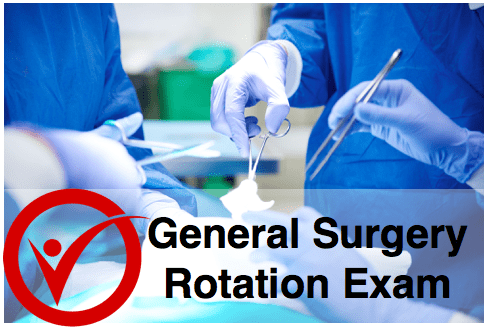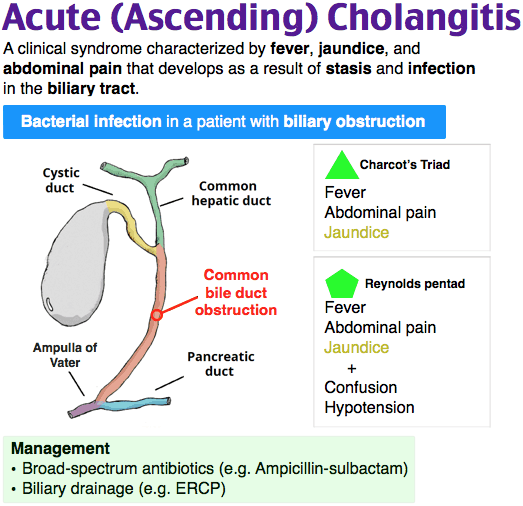Announcing the General Surgery Rotation Exam, Perfect for PA Students

Rosh Review, LLC is not sponsored or endorsed by, or affiliated with, the Physician Assistant Education Association (PAEA) nor the End of Rotation Exam™ (EOR). All trademarks are the property of their respective owners.
The Rotation Exam – General Surgery module, available to Physician Assistant students and programs, is best suited for PA students looking for a focused, high-yield review for the end of your rotation. It joins our growing list of Rotation Exams, including Rotation Exam – Family Medicine, Rotation Exam – Internal Medicine, Rotation Exam – Emergency Medicine, and Rotation Exam – Women’s Health. This content is novel and not included in Rosh Review’s PANCE Qbank, Mock exams, or Power Packs.
Topics for the Rosh Review General Surgery Rotation Exam are based on the national curriculum blueprint.
Categories include the following:
- Gastrointestinal/Nutritional (50%)
- Preoperative/Postoperative (12%)
- Cardiovascular (9%)
- Endocrinology (8%)
- Urology/Renal (5%)
- Neurology (5%)
- Dermatology (5%)
- Pulmonology (3%)
- Hematology (3%)
Content is organized by task:
- History and Physical
- Diagnostic studies
- Diagnosis
- Health maintenance
- Clinical intervention
- Clinical therapeutics
- Scientific concepts
Here is an example:
In addition to administering broad-spectrum parenteral antibiotics, which of the following interventions is the best choice for a patient with acute cholangitis?
A. Endoscopic retrograde cholangiopancreatography
B. Esophagogastroduodenoscopy
C. Laparoscopic cholecystectomy
D. Laparoscopic herniorrhaphy
Answer A
Acute cholangitis most commonly occurs due to biliary tract obstruction, stasis, and infection. The most common causes of obstruction are biliary calculi, benign stenosis, and malignancy. Cholangitis is also a common complication of stent placement for malignant biliary obstruction. The infection usually ascends from the duodenum. Classic presentation is fever, jaundice, and abdominal pain (Charcot triad), although most affected patients present only with abdominal pain and fever. Blood analysis usually reveals an elevated white blood cell count with neutrophilia and a cholestatic pattern of elevated liver enzymes: alkaline phosphatase, gamma-glutamyl transpeptidase (GGT), and bilirubin. Diagnosis of acute cholangitis should be suspected if a patient has fever, shaking chills, or laboratory evidence of an inflammatory response, in addition to abdominal pain, jaundice, or abnormal liver chemistries. Definitive diagnosis can be made when a patient meets the previous criteria and also has biliary dilation or evidence of an etiology (e.g., stricture, stone, stent) on transabdominal ultrasonography (US). Blood cultures and cultures from bile or stents should be obtained on all patients to help guide antibiotic therapy. Endoscopic retrograde cholangiopancreatography (ERCP) confirms the diagnosis of acute cholangitis and enables biliary drainage, which can be a life-saving intervention. Patients suspected of having acute cholangitis should be admitted to the hospital to monitor and treat sepsis, provide empiric and then tailored antibiotic therapy, and establish biliary drainage. Since patients who develop acute cholangitis due to gallstones or benign stenosis are at high risk for recurrence, cholecystectomy and surgical repair, respectively, are generally recommended.

Esophagogastroduodenoscopy (EGD) (B), or upper endoscopy, examines the esophagus, stomach, and duodenum. Therapeutic procedures such as esophageal dilatation can be performed via EGD, but biliary drainage cannot. Laparoscopic cholecystectomy (C) is indicated for symptomatic gallstone disease and may ultimately prevent cholangitis recurrence, but would not provide the necessary biliary drainage for acute cholangitis. Laparoscopic herniorrhaphy (D) is indicated for symptomatic hernia or a hernia at increased risk for strangulation but plays no role in acute cholangitis management.
Since these categories and tasks are integrated into our improved performance and feedback page, you have access to robust data to help you fine-tune your studying.
Keep an eye out for the release of the remaining rotation exams in Pediatrics, and Psychiatry and Behavioral Health.
Study on…
The Rosh Review Team
A bolus of confidence. A lifetime of knowledge.





Comments (0)